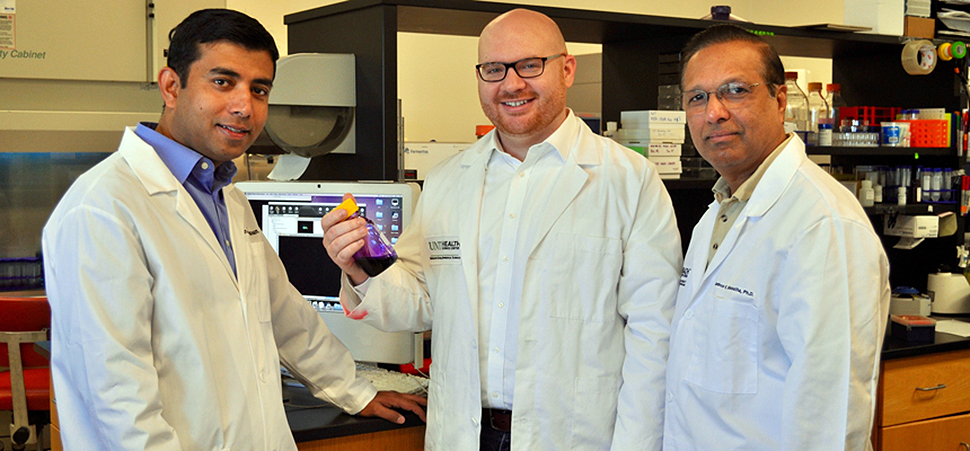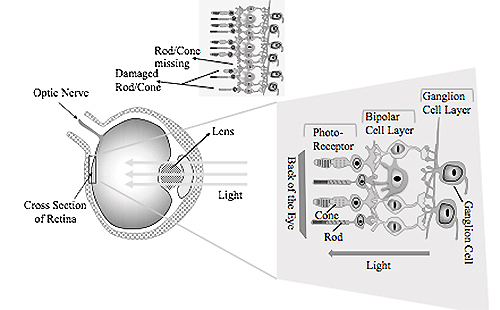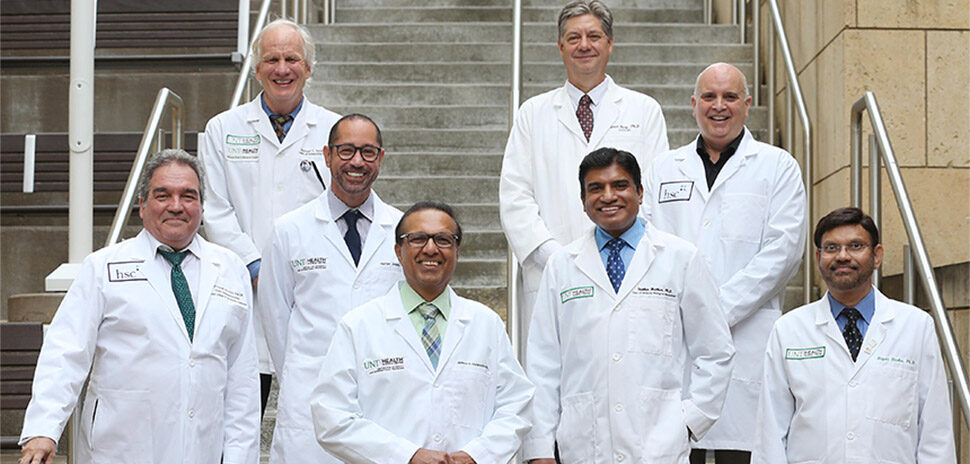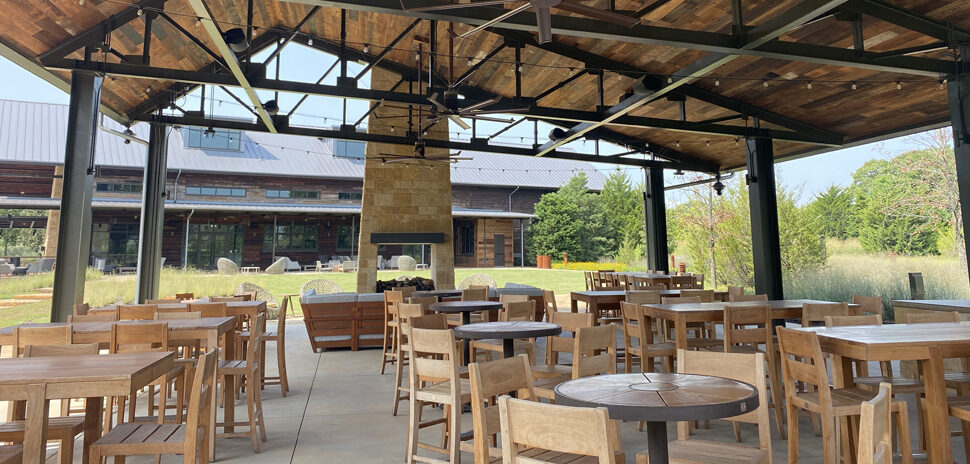NANOPARTICLE TREATMENT SHOWS PROMISE IN PROSTATE CANCER FIGHT
![]() Researchers at the University of North Texas Health Science Center are using nanotechnology to target prostate cancer cells that have spread to the bone.
Researchers at the University of North Texas Health Science Center are using nanotechnology to target prostate cancer cells that have spread to the bone.
In the past, that’s been a challenging development and can result in pain, fractures, and limited survival, according to UNTHSC.
Using the new approach, doctors can treat the bone lesion more precisely, said Jamboor K. Vishwanatha, regents professor of biomedical science and vice president for Diversity and International programs.

From left to right: Amalendu Ranjan, Andrew Gdowski, and Jamboor K. Vishwanatha. [Photo courtesy of UNTHSC]
“When prostate cancer spreads to the bone, which it frequently does, it reduces quality of life, causes pain, and leads to bone loss,” he said. “Metastatic prostate cancer is also very lethal.”
UNTHSC said that prostate cancer is the second most-common cause of cancer death among American men, with 161,000 new cases diagnosed each year.
Vishwanatha’s team developed an approach using targeted polymeric nanoparticles to deliver the drug cabazitaxel directly to the bone, UNTHSC said. The drug was released within the first eight hours, with a sustained release for up to 72 hours.
“The targeted nanoparticles not only decreased tumor size, but also helped maintain bone structure and reduce pain,” said Amalendu Ranjan, research assistant professor of biomedical sciences and a lead team member. Discover more about the research here.

Red snapper are a valuable piece of the fisheries in the Gulf of Mexico. [Photo: SMU]
SMU STATISTICIAN AIDS IN RED FISH ABUNDANCE STUDY
An SMU statistician is part of a research team assembled by the U.S. Department of Commerce to conduct an independent abundance assessment of red snapper in the Gulf of Mexico, a vital member of the gulf’s fisheries.

Lynne Stokes
Lynne Stokes is taking part of the expert team of government and university scientists who will determine how abundant the fish is in the gulf.
“Red snapper have great economic value to all the gulf states,” Stokes said. “Maintaining the health of the species is vitally important, so it’s necessary to ensure species are fished at the right level.”
Stokes is an expert in surveys, polls, and sampling, and SMU said her role is to help design ways to sample the vastness of the gulf efficiently so that good abundance estimates are made.
Hooked? Find out more here.
BEDFORD COMPANY GETS ORPHAN DRUG DESIGNATION
Bedford-based NanoScope Technologies has received Orphan Drug Designation from the U.S. Food & Drug Administration for using optogenetics in its work on retinitis pigmentosa, a group of inherited diseases that cause retinal degeneration.
The company’s work could bring sight to people who have damaged retina cells.
“This is a very, very big deal and means their development will be fast-tracked through the FDA.”
Darlene Boudreaux
NanoScope is a SmartStart client of Tech Fort Worth, a nonprofit organization that assists entrepreneurs in launching and growing emerging technology companies that have a high potential for success.
“This is a very, very big deal and means their development will be fast-tracked through the FDA,” TechFW Executive Director Darlene Boudreaux said. “It also has some considerable financial perks.”
The advantages are significant.
Sulagna Bhattacharya, chief executive officer and chief operating officer of NanoScope Technologies, said in a release that Orphan Drug Designation adds seven years of marketing exclusivity, patent term extension, eligibility for special FDA grants, application fee discounts, and major tax breaks on clinical development worth approximately $10 million.

NanoScope is working on a treatment for retinal degeneration. [Illustration courtesy of NanoScope Technologies]
President and Chief Scientific Officer Dr. Samanrendra Mohanty founded NanoScope Technologies in 2009. It now has 10 employees.
NanoScope Technologies said it has developed a suite of synthetic multi-characteristic opsins — a group proteins made light-sensitive via the chromophore retinal found in photoreceptor cells —that can be optically activated using very low intensity light.
The company located in Bedford because “we received approval for a pre-clinical research lab, have excellent access to TechFW, the convenience of DFW International Airport, and a large number of former Alcon employees in the area,” Mohanty said.
![]()
Get on the list.
Sign up to keep your eye on what’s new and next in Dallas-Fort Worth, every day.
And, you’ll be the first to get the digital edition of our new Dallas Innovates magazine:
The annual edition publishes in January





























